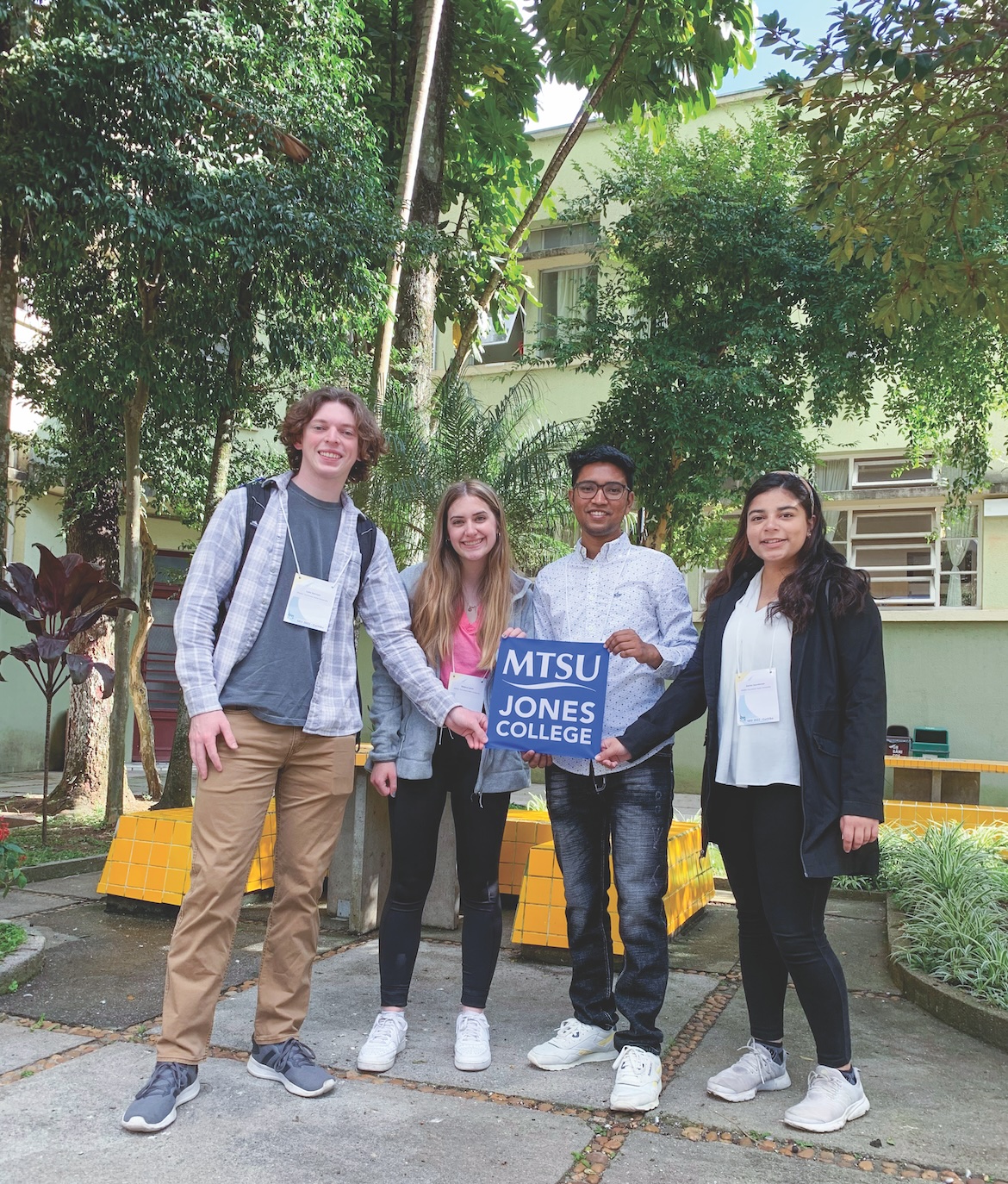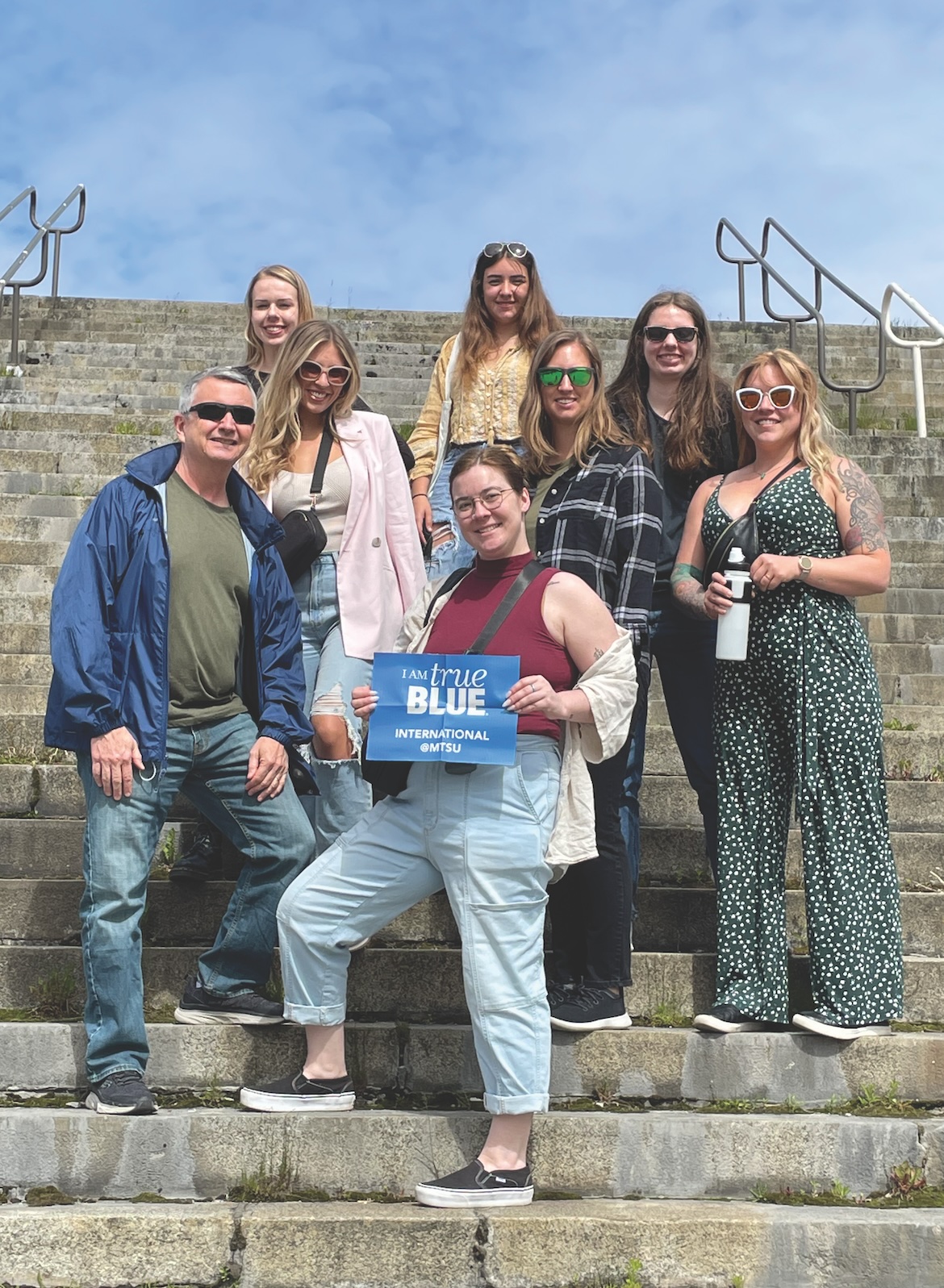
7 minute read
Jones College Around the World
Already a world-class business school, MTSU college sets its sights on a global stage
by Drew Ruble
AACSB, the accrediting association for business schools worldwide, holds to the principle that global education is essential, now more than ever.
“An international business education is a solution that can bridge divisions in the world and provide a path for shaping a better future,” AACSB states on its website. “Business schools can safeguard the benefits of globalization by equipping future leaders with characteristics such as cultural intelligence.”
Jones College, which boasts double AACSB accreditation, placing it in the top 1.4% in the world, is fully on board with the 109-year-old organization’s philosophy.
Dean Joyce Heames, who joined MTSU in 2023, cites globalization of Jones College’s presence and the cultural education of its student body as two of her top priorities.
Doing so promises to vault the college’s reputation to its rightful place on the global stage.

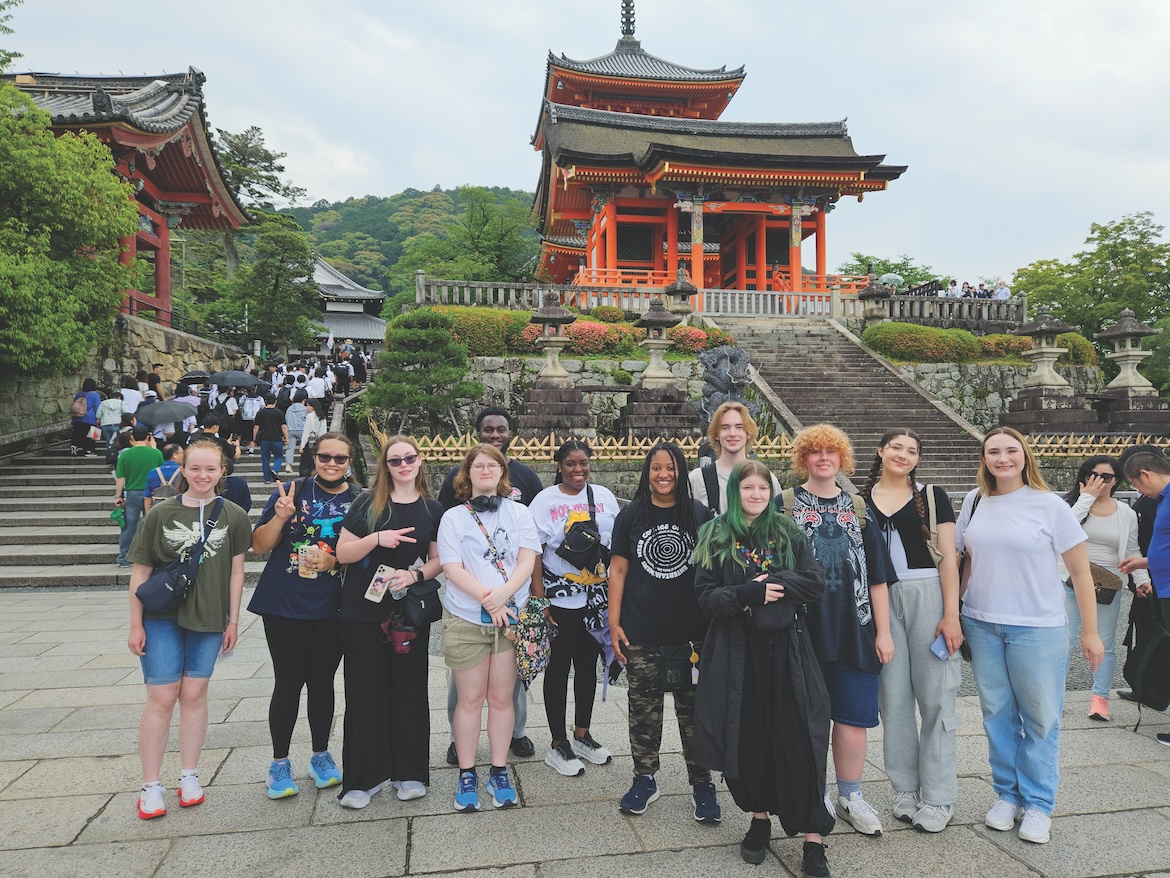
KNOWING YOUR WHY
Why is it important for a U.S. business school to have a global presence and to teach global perspectives?
Most Fortune 500 companies today are multinational in scope. That’s true of Nashville’s largest employers as well. So, while MTSU graduates may get the opportunity to work for Nissan in Tennessee, their boss may end up being located in Japan. (Get ready for early morning calls from halfway across the world.)
“We don’t have any option in a globalized world but to have a global mindset,” Heames said.
Much of that education isn’t even related to business principles or matters of economic fact but rather to cultural details.
“There’s a difference in the etiquette of how they do business in China or India or France versus how they do business in the U.S., and we have to be mindful of that.”


KNOWING YOUR HOW
How does a business school achieve an international education for its students? Are the usual study abroad programs and international professorial perspectives in the classroom enough?
Hardly, said Heames. Upon her arrival at MTSU, Heames quickly set to the task of developing relationships with international organizations across the globe that could streamline MTSU’s efforts to physically place its business students in international business scenarios and to ensure those students get relevant experiences.
She’s done so largely through forming relationships with five different organizations spread across Europe, Asia, and South America. Current partners are the European Study Center in Strasbourg, France (operated by the CEPA Foundation); CIMBA in Paderno del Grappa, Italy; Global Academic Ventures in the Asia Pacific region; Austral Leadership Education in Chile, Brazil, Spain, and Portugal; and the University College Dublin in Ireland.
Faculty members are scheduled to begin leading student trips with these partners this summer. Students can opt for a full semester of study or participate in short-term, faculty-led courses lasting 10–14 days.

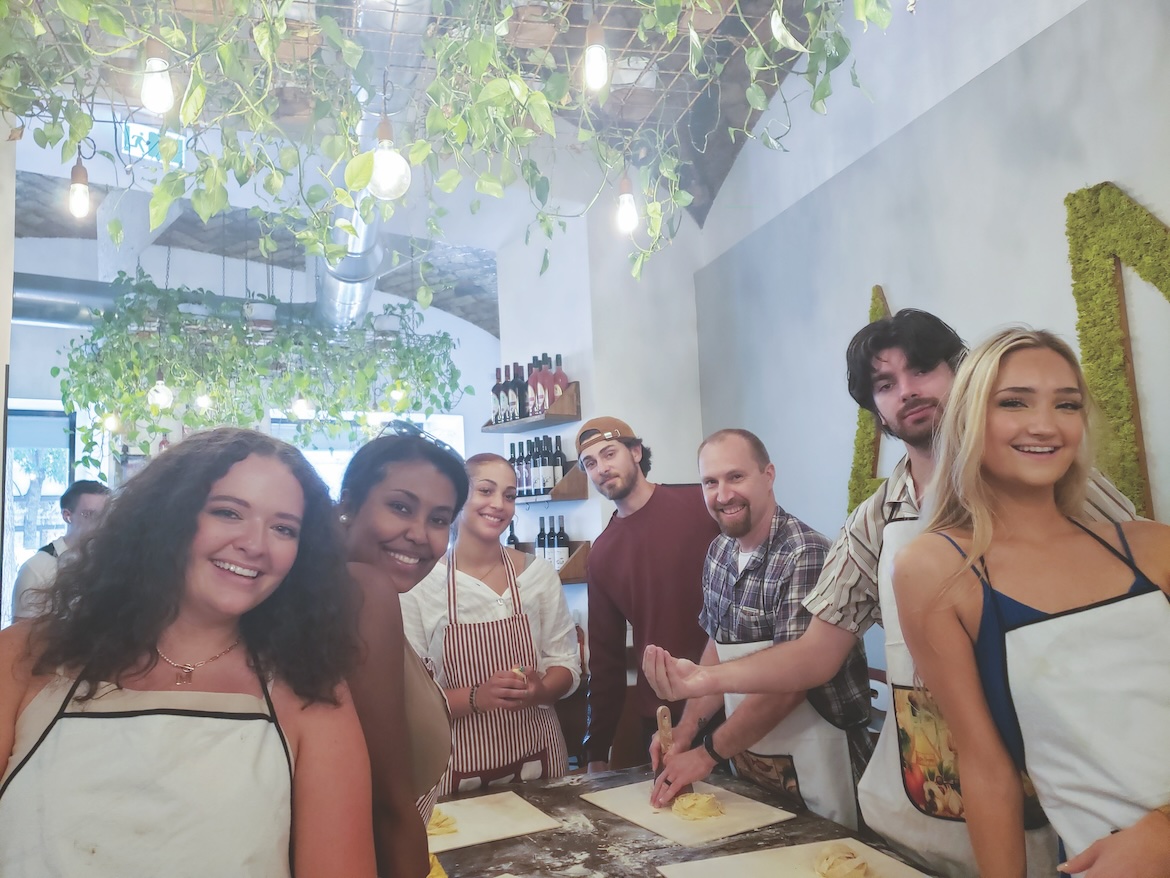
GETTING WITH THE PROGRAM
Heames stresses that her international partners must ensure they can provide three nonnegotiable, in-country support services to Jones College students during these travel abroad experiences.
First and most importantly, students must get immediate and meaningful exposure to local companies.
“When you have an MOU where there is a third party, they’re going to know the country,” Heames said. “They’re going to be able to set up those corporate visits for you. It’s much better than going over and spending three to five days exploring and trying to create those relationships. They already have them in place.
“The idea is for students to hit the ground running. There’s no learning curve. They can expect to start having impact immediately.”


Second, Heames requires partners to know the right places for MTSU students to gain immersive cultural experiences as well.
“I want these trips to be a study of comparison and contrast of U.S. business and culture versus whatever country they’re in,” Heames said, “and these partners know which cultural events are the most true to the culture itself, not just tourist attractions.”
Third, partners must offer in-country medical support, as well as clear protocols to mitigate any potential political or social risks to students.
“So, for instance, if there is an uprising of any kind in a country, we need to be able to extract our students from that situation efficiently and safely, and an in-country organization can do that much better than we can,” Heames said. “Even just in terms of getting airplane tickets changed.”
LITTLE NUANCES CAN MAKE OR BREAK A DEAL OR GREATLY IMPACT YOUR RELATIONSHIPS.

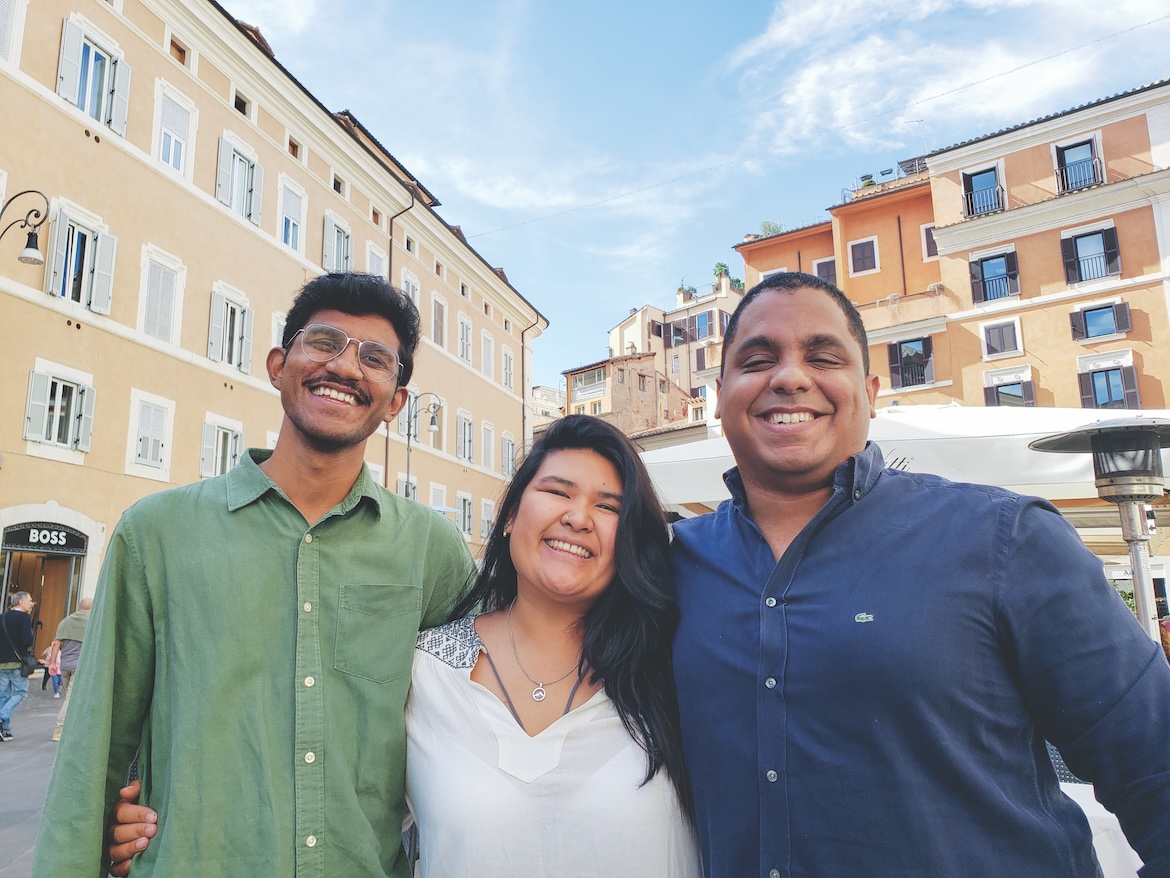
Several Jones College professors have longstanding international relationships and partners that will continue to augment these new MOUs. However, Heames has tasked those professors with ensuring that all preexisting travel abroad initiatives meet the three criteria she has stressed in carving out the new programs.
With support from alumni and friends, Jones College funds study abroad partial scholarships (to the tune of almost $40,000 this year). The college hopes to raise funds sufficient to fully fund travel abroad trips that last an entire year.
“We’re looking at various ways to underwrite these students to go,” Heames said. “I’d like for them to have a little skin in the game. But the cost should not be prohibitive.”

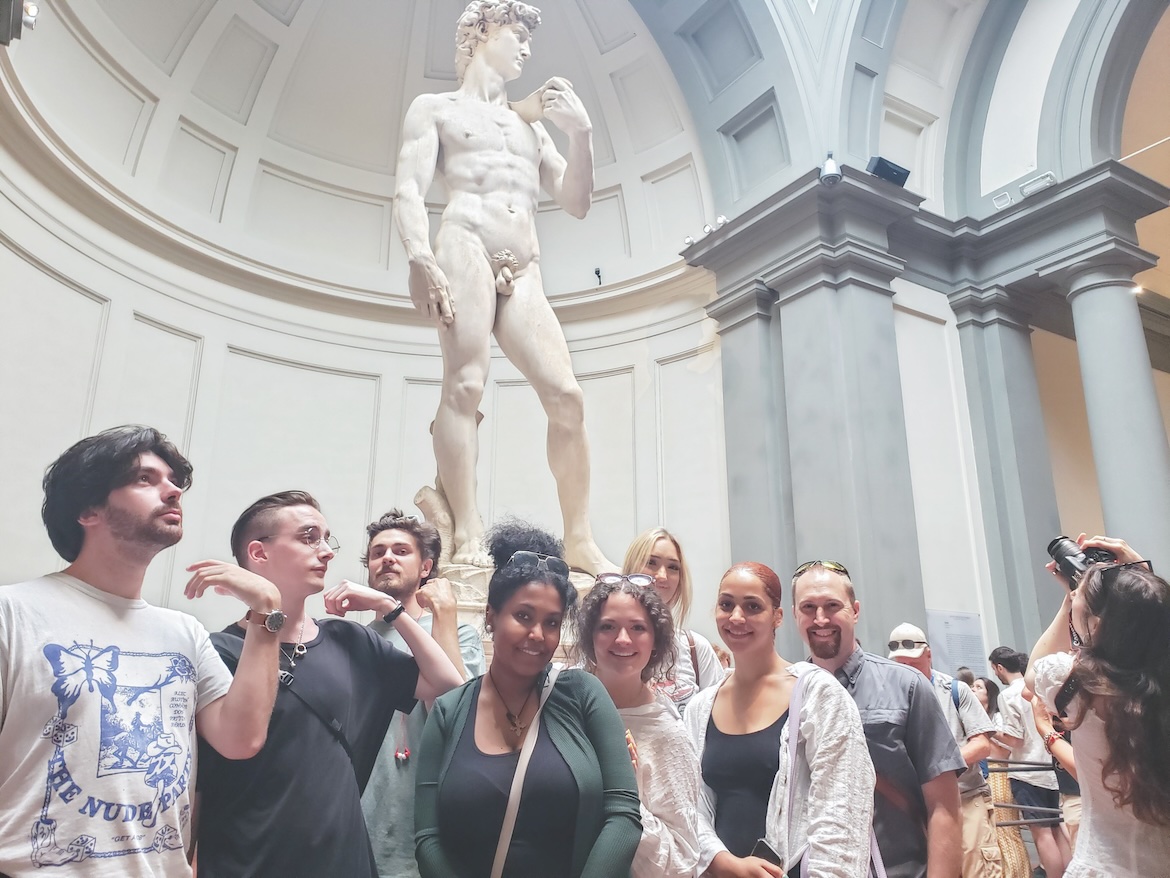
THE WORK AT HOME
In addition to study abroad opportunities, Jones College works to globalize the MTSU campus through international student and faculty recruitment. Doing so exposes American-born students to a more diverse cultural environment.
In fall 2023, MTSU welcomed 449 undergraduate and 185 graduate international students, totaling 634 students from more than 73 countries. That represented an increase of more than 100 students compared with the previous fall. While MTSU observed a decline in Chinese and Middle Eastern student numbers, there was a notable rise in students from India, subSaharan Africa, and Southeast Asia.
Faculty research with international partners and the hosting of timely and relevant conferences on campus can also draw the world’s attention to the Jones College brand. For example, Assistant Professor Gaia Rancati’s work in neuromarketing research is increasingly placing Jones College on a national platform. Similarly, the Department of Information Systems and Analytics is expected to attract faculty and research experts from Germany, Italy, and other countries to a scheduled conference on campus this spring.
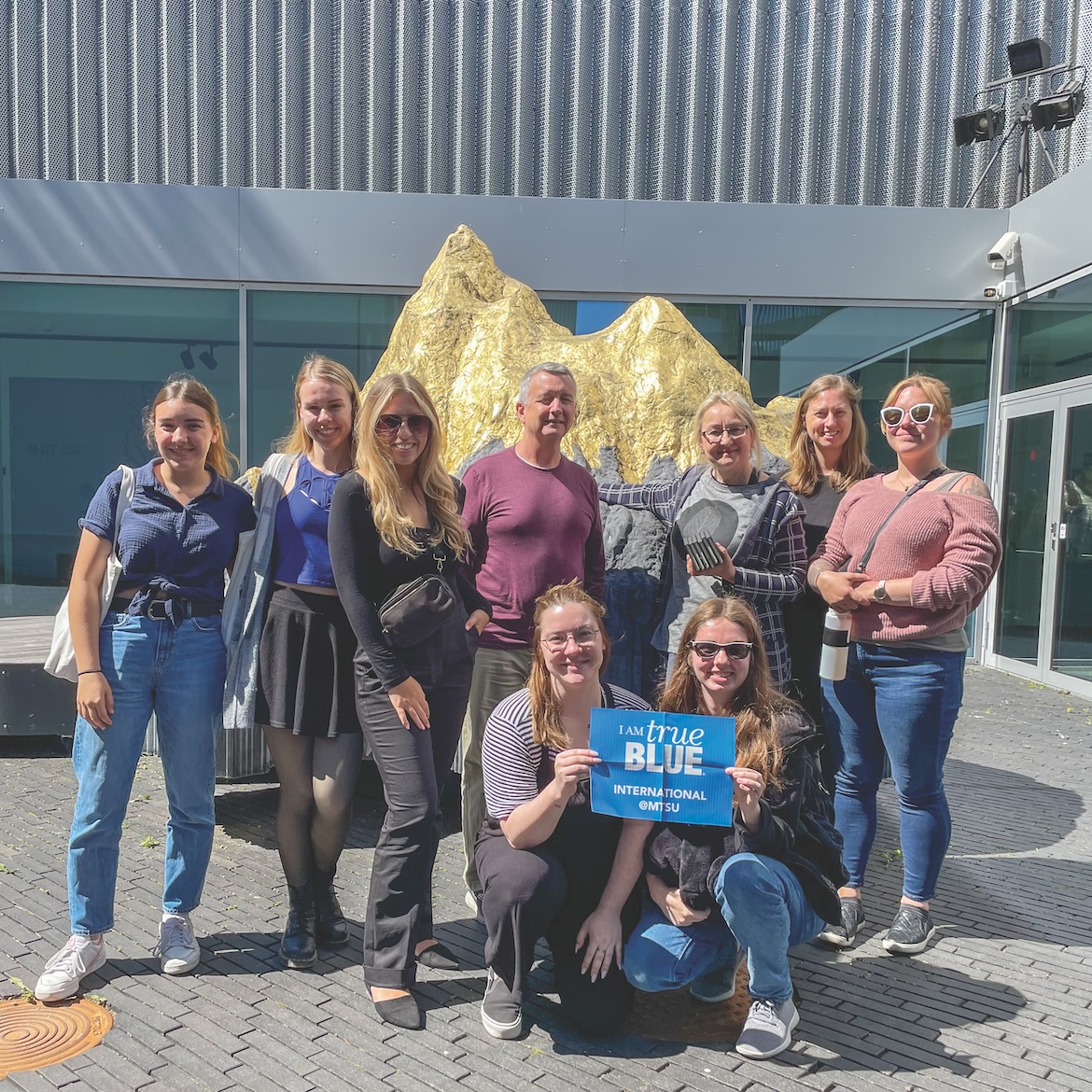

FROM HERE TO ANYWHERE
The work of successful alumni around the world also raises Jones College’s global profile. The college is continuously striving to identify graduates working in other parts of the world who may serve as a strategic partner in ongoing efforts to internationalize the school.
AACSB states that “it’s now more crucial than ever for business schools . . . to advocate for globalization.” Jones College students can rest assured they attend a business school with a strong focus on helping them hone the necessary skills to thrive in an ever-evolving global economy.
